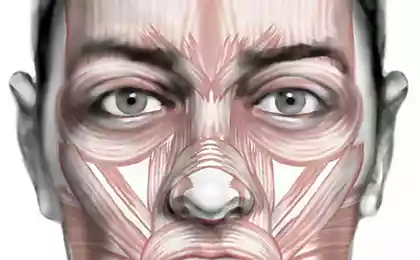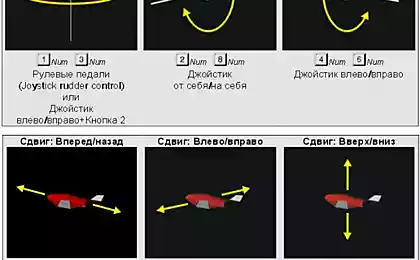139
British scientists analyzed the data and came to the conclusion that the mask regime was not very effective.
Do you often see masked people around you? Of course not. Does it really seem that the masked regime has been abolished? But no. In December, the Cabinet of Ministers of Ukraine extended the quarantine to prevent the spread of COVID-19 until April 30, 2023. And the ruling does not say that the Masonic regime has come to an end. Wearing a mask outside makes no sense. But indoors, it turns out, masked mode is not particularly effective.

About such an unexpected conclusion, which is unlikely to please the functionaries of the WHO, recently said British scientists (without them, of course, no way). To all this, remember that skeptics regarding masks as amulets from all the annoying ailments were plenty in 2020. However, experts among critics of the masked regime were not all. But it's a thing of the past.

By the way, doctors have not yet published a report on the study. But at the same time, they have already published one of its main conclusions and announced the presentation of the results. They seem to expect to at least surprise many of their colleagues and anyone who cares about their own health. Perhaps during the next outbreaks of the epidemic, there will be announcements like this: “The mandatory mask regime is canceled.” So far, it seems utopian.
In addition, it is reported that data collected at St. George's clinic during the wave of the strain "Omicron", showed that wearing masks did not significantly affect the transmission of hospital-acquired coronavirus infection. The clinic is one of the largest in the United Kingdom.

The researchers analyzed data for 10 months – from December 2021 to September 2022. Conclusion: the introduction of mask regimen did not lead to a noticeable decrease in the level of hospital-acquired infections. By the way, studying the effect of masking It happened in two stages. The first was for all hospital staff and visitors to wear masks. In the second phase, masks were only worn by those in the hospital wards with the highest risk of contracting the disease.
In the end, it turned out that the difference between the rate of spread of the virus at both stages was not statistically significant. Well, statistics dispassionately operates with huge numbers, it does not realize that each person is unique and vital for someone. According to experts interviewed by the publication Healthline, where the results of this study will be published, the findings are consistent with other data collected recently, and indicate no relationship between mask wearing and the incidence of coronavirus.

London researchers will present their findings at the European Congress (ECCMID) in Copenhagen in April. Then we can find out how the medical community will perceive the rather unexpected news.

I wonder if Professor Kawaoki Yoshihiro of the University of Tokyo will agree with these conclusions of colleagues from London? In October 2020, he experimentally proved that the number of coronaviruses spread by a carrier is reduced by 70% when wearing a fabric mask. And respirator and completely reduces the "flock" of COVID pathogens that escaped from the sneezing carrier into free flight by 79%.

Do you think it's time to bet on the winner in this yet-to-be-spoken dispute?

About such an unexpected conclusion, which is unlikely to please the functionaries of the WHO, recently said British scientists (without them, of course, no way). To all this, remember that skeptics regarding masks as amulets from all the annoying ailments were plenty in 2020. However, experts among critics of the masked regime were not all. But it's a thing of the past.

By the way, doctors have not yet published a report on the study. But at the same time, they have already published one of its main conclusions and announced the presentation of the results. They seem to expect to at least surprise many of their colleagues and anyone who cares about their own health. Perhaps during the next outbreaks of the epidemic, there will be announcements like this: “The mandatory mask regime is canceled.” So far, it seems utopian.
In addition, it is reported that data collected at St. George's clinic during the wave of the strain "Omicron", showed that wearing masks did not significantly affect the transmission of hospital-acquired coronavirus infection. The clinic is one of the largest in the United Kingdom.

The researchers analyzed data for 10 months – from December 2021 to September 2022. Conclusion: the introduction of mask regimen did not lead to a noticeable decrease in the level of hospital-acquired infections. By the way, studying the effect of masking It happened in two stages. The first was for all hospital staff and visitors to wear masks. In the second phase, masks were only worn by those in the hospital wards with the highest risk of contracting the disease.
In the end, it turned out that the difference between the rate of spread of the virus at both stages was not statistically significant. Well, statistics dispassionately operates with huge numbers, it does not realize that each person is unique and vital for someone. According to experts interviewed by the publication Healthline, where the results of this study will be published, the findings are consistent with other data collected recently, and indicate no relationship between mask wearing and the incidence of coronavirus.

London researchers will present their findings at the European Congress (ECCMID) in Copenhagen in April. Then we can find out how the medical community will perceive the rather unexpected news.

I wonder if Professor Kawaoki Yoshihiro of the University of Tokyo will agree with these conclusions of colleagues from London? In October 2020, he experimentally proved that the number of coronaviruses spread by a carrier is reduced by 70% when wearing a fabric mask. And respirator and completely reduces the "flock" of COVID pathogens that escaped from the sneezing carrier into free flight by 79%.

Do you think it's time to bet on the winner in this yet-to-be-spoken dispute?
Radiant Angela Pearl told what to expect from a solar eclipse on April 20, 2023
While cleaning, I found some strange folder when I opened it, I realized I shouldn't have seen these papers.























